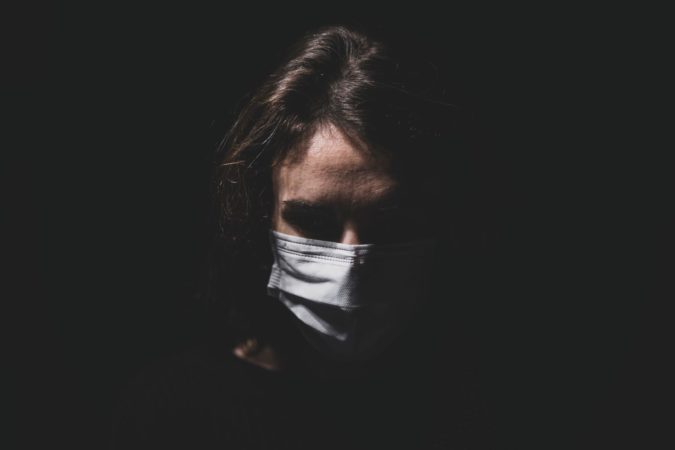The winter months are often when employers will see increased levels of employee absence, due to the seasonal rise in colds, influenza and other respiratory viruses.
With a recent study putting the cost per employee at £568¹; it’s an expense that might be especially hard to swallow as businesses that have had to close during the pandemic attempt to ‘make up for lost time’.
With all restrictions due to lift, experts predict that the level of days lost to staff sickness could be much higher than usual, with particular concern over the spread of influenza.
Dr D. L. Webber, a microbiologist with over 50 years’ experience explains the reasons behind the predicted trend and along with , and Airdri’s head of research and development Steve Whittall, how businesses can reduce absenteeism during the winter months.
“It is inevitable that when people begin to mix as the COVID-19 restrictions are lifted, that there will be an increase in people catching and spreading other respiratory viral infections associated with Influenza A + B, Respiratory Syncytial Virus (RSV), Metapneumovirus, Rhinovirus, Parainfluenza, and Adenovirus,” began Dr Webber.
“As the range of responses intended to fight the COVID-19 pandemic — from lockdowns to mask wearing, social distancing and reduced international travel — are relaxed, respiratory viral infections (including COVID-19) will undoubtedly increase. These responses have had a huge impact on the spread of other common respiratory illnesses too.
Steve Whittall, our Group Research Development Director here at Airdri, adds:
“There’s an expectation that once restrictions are lifted, we will all go back to ‘business as usual’, but infection control is something more business are, and should be, looking into. Coronavirus has shifted employee wellness up the priority list; and we’ve seen that reflected in the huge rise in enquiries for our air sanitisation units.
“Personally, I think there has been a shift in consciousness too. Where previously there was the expectation that we should just ‘grin and bear it’ if we had a minor cold or flu, bosses have been forced to introduce proper procedures around attending work when feeling unwell. And if predictions are true, that’s going to be really important as we head into winter.”
Sickness Levels During the Pandemic
Every year the Chartered Institute of Personnel and Development (CIPD) undertakes a comprehensive survey into staff absence in the UK. In 2020, there was a different trend from previous years as the overall levels of absence recorded were at their lowest in the 20-year history of the survey.
Good news considering that the annual cost of absenteeism is said to have stood at around £14billion in 2020. However, the fact that sickness decreased could mean the opposite is true this winter as further explained by Steve Whittall:
Steve continues: “And as we head towards winter, considering the cold weather and the double whammy of easing restrictions that have kept cross infection at bay, we could be looking at a very different picture. On average, 38 days are lost per business, every year, to colds and flu. Imagine how that number might change once restrictions are lifted.”
Is Britain Heading for a Flu Epidemic?
With the vaccination programme data showing initial positive results, the concern is that as we avoid a rise in COVID-19, there is a spike in other respiratory diseases, in particular, influenza.
Dr Webber continues: “The main effect of coronavirus restrictions on other airborne viruses is the reduction in influenza. Heading into the back of the year, I would expect a significant rise in flu cases driven by international travel, which may lead to potentially severe seasonal epidemics.
“The main reason for this is because low transmission rates last flu season mean we have a lack of information on which flu variants to include in any vaccine programme. Furthermore, a low-flu season might kill off less-common variants of influenza, making the choice of strains for future vaccines more difficult. We also do not know if the COVID-19 vaccines confer any immunity to similar human coronaviruses associated with respiratory infections (although the reverse has been suggested).
“Pair this with the usual seasonal rise in infection rates of common colds, I would expect a bigger than average rise in absenteeism.”
How Seasonal Changes Affect Absenteeism
When looking to reduce absenteeism in the workplace, it’s helpful to consider why illnesses like colds and flu tend to spike in winter. The most obvious is that when it gets colder people spend more time indoors, which has three effects:
1. Crowded spaces promote the spread of virus-laden droplets/aerosols.
2. Air conditioning/central heating reduces humidity in the air, increasing the survival of enveloped viruses such as influenza and coronaviruses. Reduced humidity can also dry out nasal passages making them more vulnerable to infection by respiratory viruses.
3. Reduced ventilation due to closing windows and HVAC systems operating with decreased air intake (to keep heating costs low) lessen dilution of aerosols and contribute to the spread of respiratory viruses in domestic and office environments.
Enveloped viruses survive longer under winter conditions as the low temperatures help to protect the structural integrity of the envelope, guarding the virus.
What then can be done to reduce absenteeism during the winter months?

Focus on Workplace Air Quality
“Buildings play a critical role in reducing, or conversely exacerbating, the spread of airborne infectious diseases,” explains Dr Webber.
“Building-related interventions have been shown to reduce the spread of many other airborne infectious diseases, including severe acute respiratory syndrome (SARS), Middle East respiratory syndrome (MERS), tuberculosis, measles, and crucially, influenza.
“Enhanced outdoor air ventilation has been recorded to reduce influenza and tuberculosis transmission in hospitals and school buildings. Upper-room ultraviolet (UV) germicidal irradiation also substantially reduced the spread of measles in a school during an epidemic. It is becoming apparent thatventilation and potentially air cleaning, are key components of risk reduction strategies for airborne infectious diseases (including COVID-19).”
Steve adds: “Current ventilation and air cleaning standards were designed for comfort, controlling temperature, pollutants, and odours. They are not fit for purpose when it comes to preventing airborne infectious disease transmission.
“As a result, most buildings are not designed in a manner that supports the rapid removal of infectious respiratory viruses. The Government advice during the pandemic focused on opening windows to allow fresh air to circulate, but as we head into the colder months this is neither practical nor desirable.
“Portable air cleaners with high efficiency particulate air (HEPA) filtration have been suggested as a solution. Where this technology can significantly increase the clean air supply, all the air in the room must pass through the filter for it to be purified; some viruses are so small they flow straight through the filters and escape back into the air.”
Steve continues: “Another solution would be the installation of air sanitisation units such as our SteraSpace range, which effectively remove viruses, bacteria, mould, fungi and odours by combining three technologies to emit a stream of disinfecting plasma into the air.”
Air Cleaning TechnologySteraSpace has been tested at Porton Down and is proven to kill 98.11% of airborne and 99.6% of surface micro-organisms and by the Health Protection Agency where the efficacy results showed that within five minutes, 96-98% of airborne viruses were eliminated
A case study using this technology in an NHS call centre revealed a 42% reduction in absenteeism
Specific issues that saw a marked reduction were asthma, colds, coughs, influenza, chest/respiratory and gastrointestinal illness
Considering the reduced cost of overtime sickness cover, it’s estimated this was a saving to the business of over £200,000 over the three months
Reducing the numbers of ‘working unwell’
Presenteeism is defined as the ‘act of showing up to work without being productive’ and it is endemic in UK workplace culture. A recent study found:
- More than half of ‘deskless’ workers have gone into work while unwell because they could not afford to take time off
- A survey of 1,500 people found that over half 55% had struggled into work unwell
In the case of illness, encouraging staff to attend work when feeling ill, even if not intentional, is likely to escalate rates of absence, as explained by Steve Whittall:
“Pre-pandemic there was a prevailing ‘stiff upper lip’ attitude to attending work when sick in many workplaces. Employees would feel duty bound to come into the workplace when they weren’t feeling 100%, whether for financial reasons or because of a cultural ideology that frowns upon taking time off.
“It’s a false economy, the working unwell will likely pass the illness around the workplace, resulting in more sick days for the entire team. If companies really want to reduce the number of days lost through staff sickness, attitudes to presenteeism need to change.”
Dr. D. L. Webber is the Technical Director of Microbial Innovations Limited. He has a background of over 50 years in microbiology (including 16 years at U.C. Swansea, 16 years as Microbiologist with Fospur/Ashland, and 19 years as Technical Director of Microbial Innovations Limited).
- http://hrnews.co.uk/employee-sickness-absence-rates-rise/
- https://www.personneltoday.com/hr/deskless-workers-feel-unable-to-take-time-off-when-sick/


